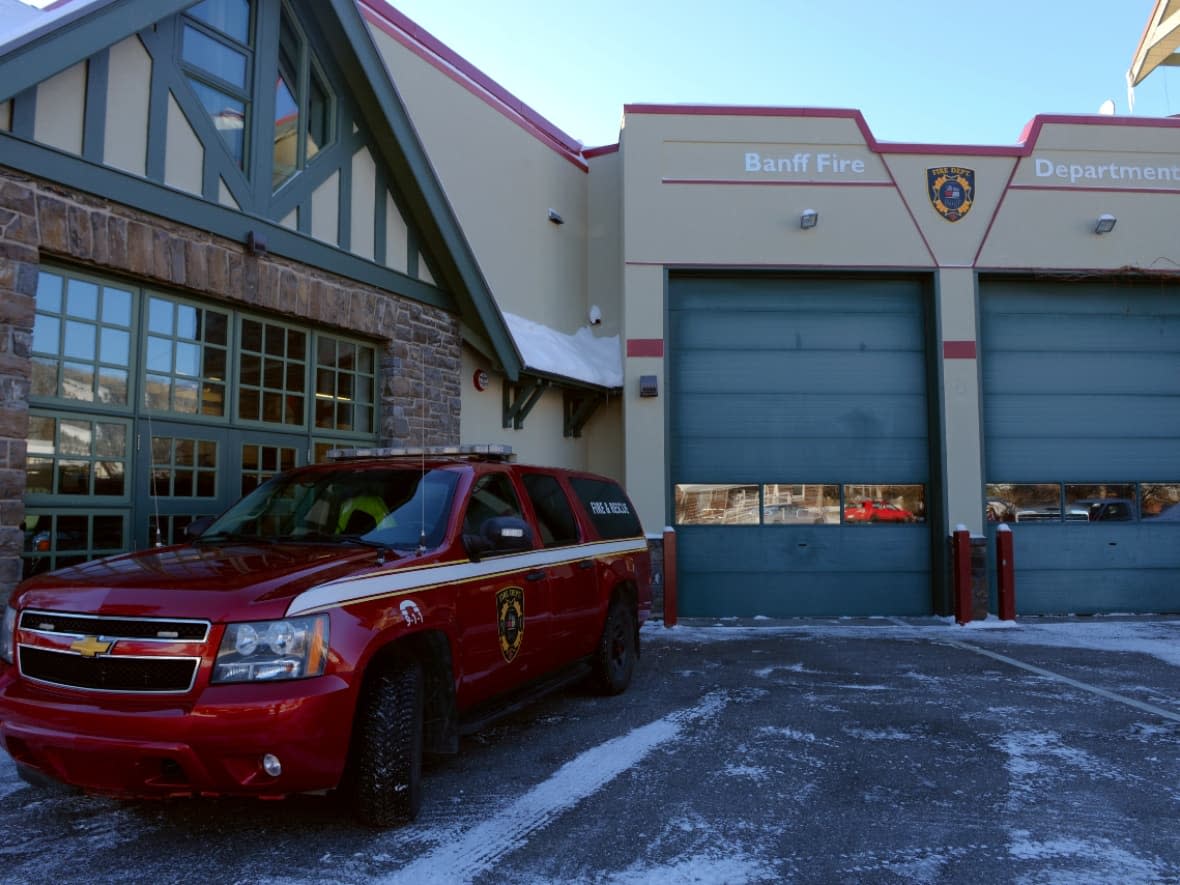Future of rescue service unclear for Highway 93 in Kootenay National Park

The future of the Banff Fire Department's rescue services along Highway 93 in Kootenay National Park is unclear.
Banff has had a 10-year agreement in place to respond to crashes and medical calls on Highway 93 in the park since 2014.
In a meeting with the Lake Louise, Yoho and Kootenay Field Unit, the town was told that Parks Canada isn't legally responsible for road rescue and it wants to cancel the agreement by the end of this year.
In a town council meeting Monday, fire department Chief Silvio Adamo told Banff councillors that Parks Canada has reversed its decision — for now.
"We received a letter from the superintendent advising us they've reconsidered the termination and they will honour the agreement to the end of its original contract," Adamo said, adding that means they will continue rescues until the end of 2023. "They've made it very clear after that they will not re-enter into another agreement."
Right now, if there's a medical, fire, or road rescue call on Highway 93 firefighters from the town of Banff respond to calls on the B.C. side of Kootenay National Park — about 70 kilometres from the town of Banff, or halfway to Radium on Highway 93.
The town of Invermere and the Town of Banff's emergency response meet between Vermillion Crossing and Kootenay crossing.
Adamo called this a good news, bad news story for the future of this emergency service and how it is funded.
Town says it has no legal obligation to respond
"To me, it's a moral issue and it's a financial issue," Coun. Hugh Pettigrew said.
According to a report to Banff town council, typically these calls make up about one per cent of the fire department's budget. But with the Kicking Horse Canyon stretch of Highway 1 twinning closures this year, that number went up to about three per cent of the budget because of increased traffic on Highway 93.
Adamo said the Banff Fire Department also has no legal responsibility for this service and has been doing this "out of the goodness of taxpayers' hearts."
"We want to do the right thing, that's the business we're in, helping people," he said.
While the contract has been extended one more year, councillors in Banff had some concerns.
Banff closer than Invermere
Coun. Ted Christensen asked if Banff didn't go, who would come to people's rescue?
Adamo said the responsibility may fall on Invermere because most of the highway is in B.C. — but Banff's resources are closer.
The Town of Banff will engage with Emergency Management British Columbia (EMBC) before the Parks Canada contract ends, to negotiate how to continue serving this area. But things will look different.
EMBC won't compensate for medical emergencies, hazmat or fires. If someone needs extrication, they will compensate for that, Adamo explained. He said their compensation rate is also minimal and won't come close to covering the costs of providing the emergency service.
"There's a large gap in what they will compensate for and what we've normally responded to in emergencies," Adamo said.
With feedback from ambulance emergency crews, Adamo said paramedics always appreciate having a big red truck there with extra staffing and presence to keep everyone attending safe on the side of the road. And, sometimes fire services act as first responders when ambulances can't be at the scene of a crash fast enough.
'I'm concerned for the people on that highway'
An agreement with EMBC would mean that's no longer compensated.
"I'm concerned for the people on that highway when this contract ends," Coun. Chip Olver said. "I think it's a busy highway and it's unfortunate this is changing, really unfortunate."
Mayor Corrie DiManno said she is relieved Parks Canada is seeing the contract through because it gives the town time to consider and prepare its next steps.
These discussions will come back to Banff town council in the new year.
"There's a real sense of a moral obligation to try and do our best to respond to incidents on that section of highway," DiManno said. "Those could be visitors to Banff, those could be residents to Banff. That's where that moral sense of obligation comes from."


